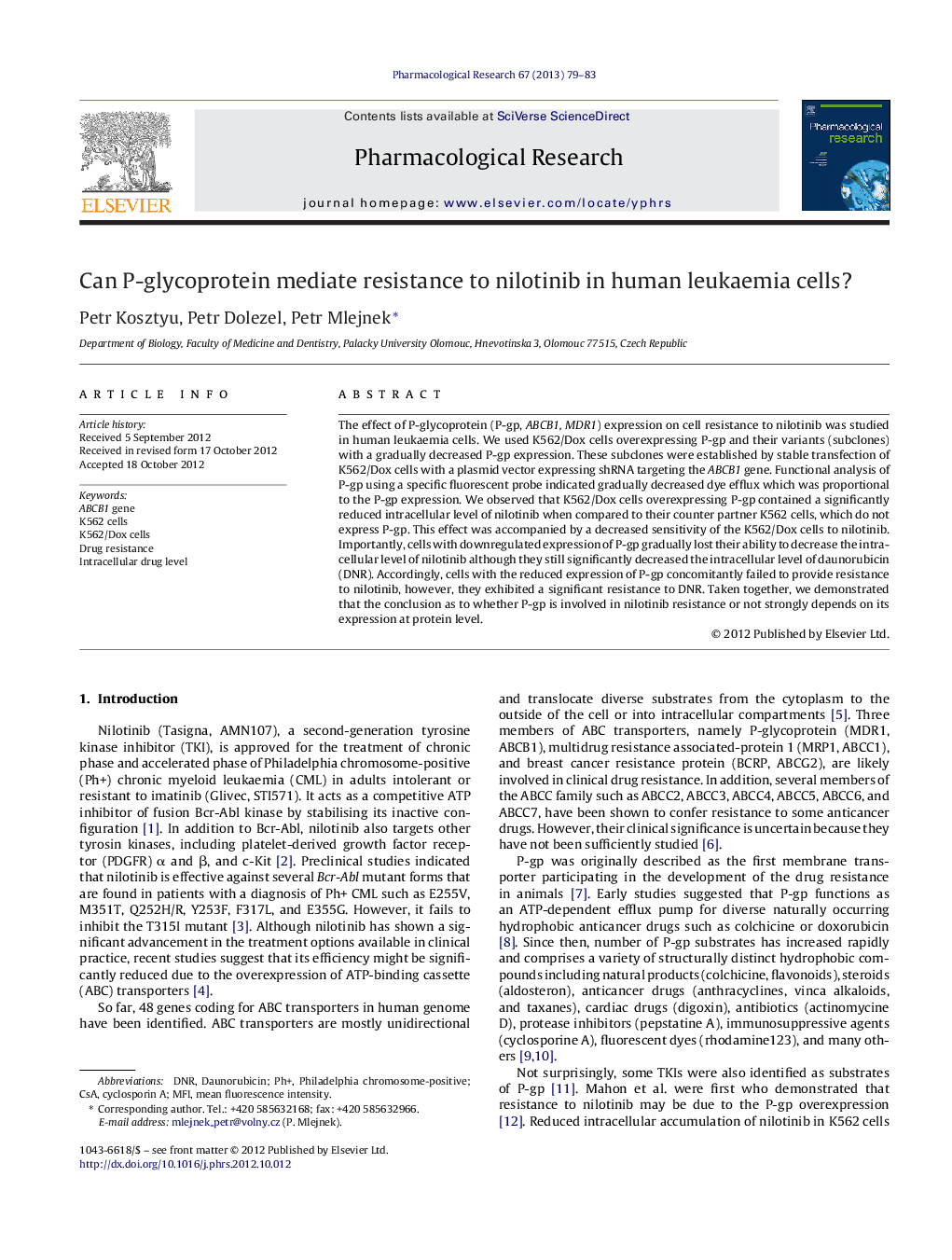| Article ID | Journal | Published Year | Pages | File Type |
|---|---|---|---|---|
| 2561427 | Pharmacological Research | 2013 | 5 Pages |
The effect of P-glycoprotein (P-gp, ABCB1, MDR1) expression on cell resistance to nilotinib was studied in human leukaemia cells. We used K562/Dox cells overexpressing P-gp and their variants (subclones) with a gradually decreased P-gp expression. These subclones were established by stable transfection of K562/Dox cells with a plasmid vector expressing shRNA targeting the ABCB1 gene. Functional analysis of P-gp using a specific fluorescent probe indicated gradually decreased dye efflux which was proportional to the P-gp expression. We observed that K562/Dox cells overexpressing P-gp contained a significantly reduced intracellular level of nilotinib when compared to their counter partner K562 cells, which do not express P-gp. This effect was accompanied by a decreased sensitivity of the K562/Dox cells to nilotinib. Importantly, cells with downregulated expression of P-gp gradually lost their ability to decrease the intracellular level of nilotinib although they still significantly decreased the intracellular level of daunorubicin (DNR). Accordingly, cells with the reduced expression of P-gp concomitantly failed to provide resistance to nilotinib, however, they exhibited a significant resistance to DNR. Taken together, we demonstrated that the conclusion as to whether P-gp is involved in nilotinib resistance or not strongly depends on its expression at protein level.
